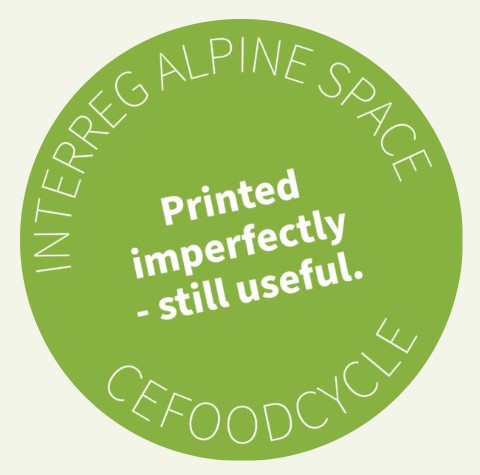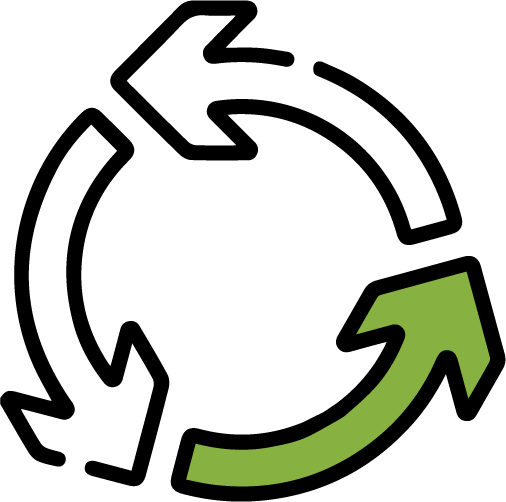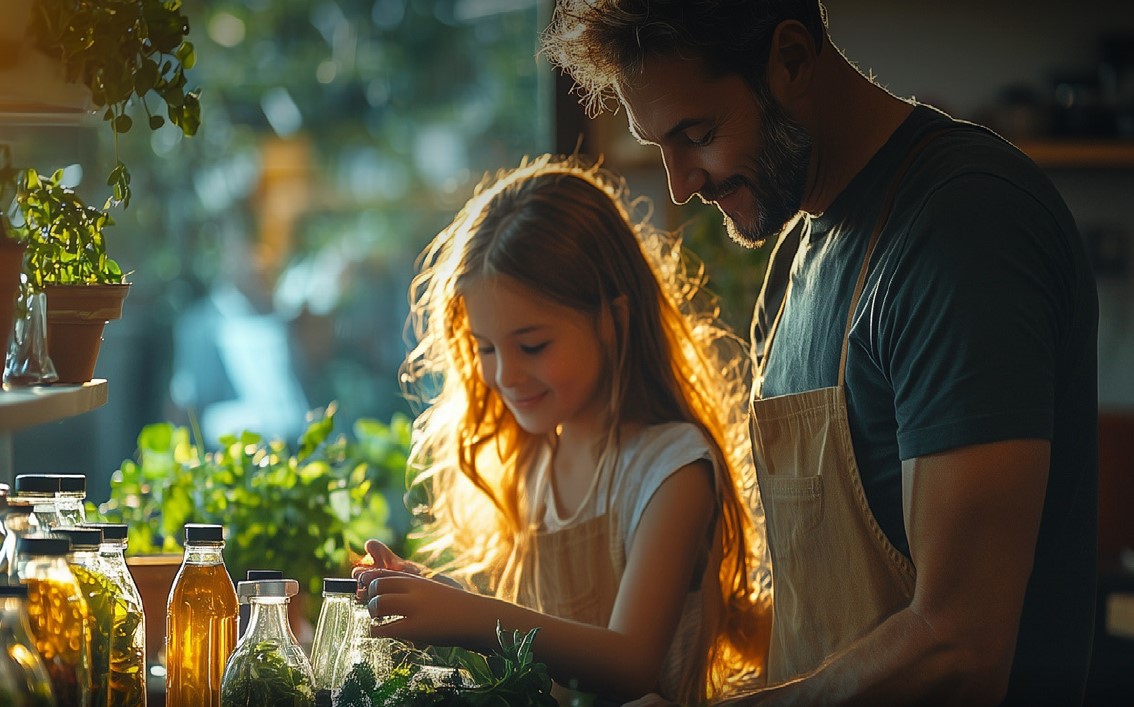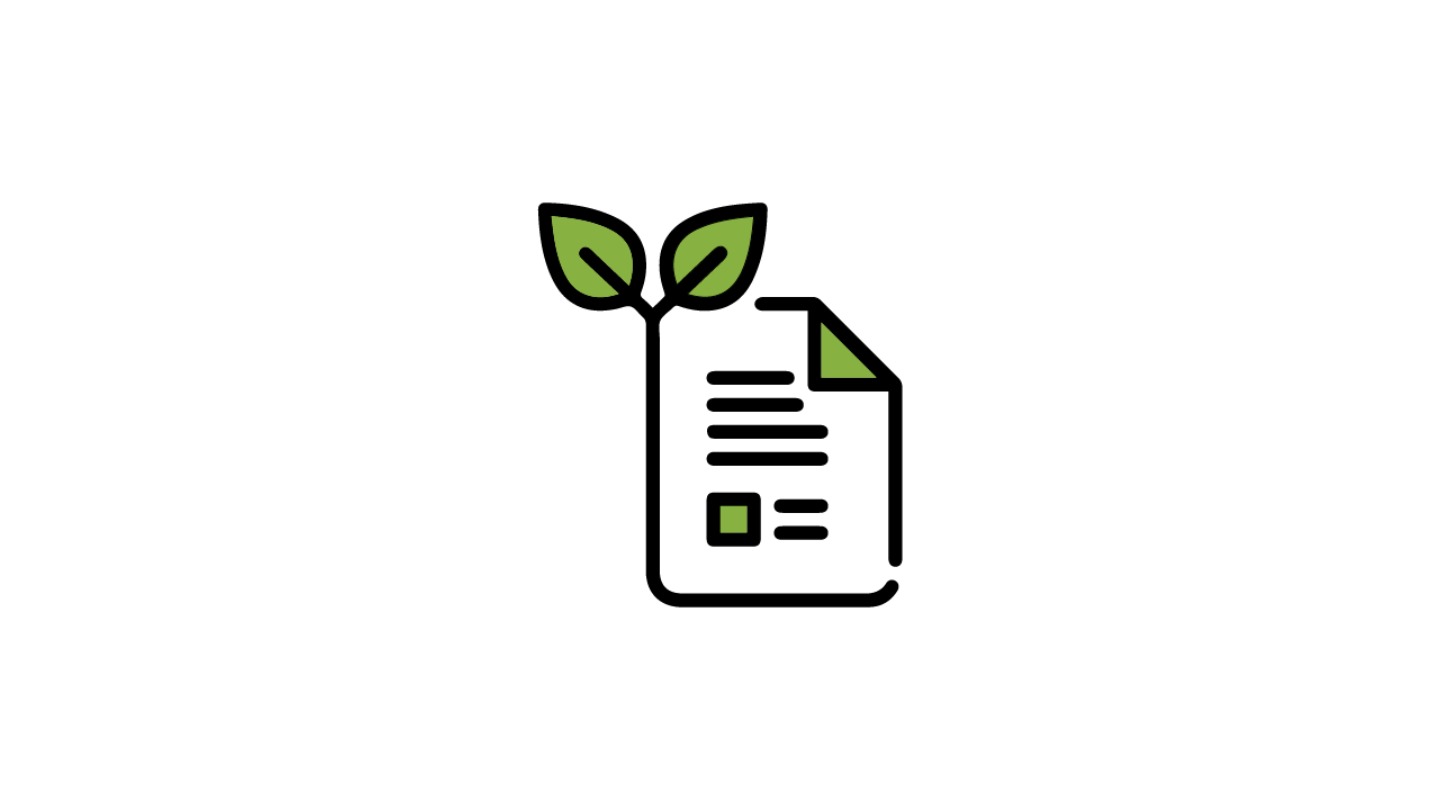
Explore, learn, and be inspired — the future of food is circular.
On this website you will find a curated collection of Education Material on Circular Economy in the food sector. These materials include videos and case studies, reports, and further teaching resources, all designed to spark discussion, creativity, and action. Whether you’re an educator, student, entrepreneur, or policymaker, this material offers concrete examples and tools to understand and apply circular principles in the real world.
The use of all education material is free of charge, thanks to the co-funding of the European Union through the Interreg Alpine Space programme. The education material can also be found on the project’s website.
Best Practice Videos
Circular Success Story 1: Repurposing Brewer’s Spent Grain for Sustainable Food Production
This video showcases a circular sustainability approach by repurposing spent grains from beer production into high-value, plant-based foods like burger…
Circular Success Story 2: Circular Entrepreneurship and On-Site Composting
This video showcases Circular Entrepreneurship and highlights the mission of Tripluch to turn food waste into value….
Circular Success Story 3: Rethinking Urban Food Systems with FUSILLI
Rethinking urban food systems: This video highlights the FUSILLI project, part of Horizon 2020, which transforms urban food systems through…
Circular Success Story 4: Fascination of Fermentation: The re.garum project
These videos introduce the Fascination of Fermentation with re.garum, based in Bolzano. The circular startup transforms food byproducts into a…
Circular Success Story 5: From Tradition to Table: A Circular Success Story
This video introduces the Hiša Linhart Initiative, which connects local producers, chefs, and the community through sustainable food, education, and…
Circular Success Story 6: From Fish to Food: Solos Aquaponix
The video highlights Solos Aquaponix, an innovative startup using a sustainable, closed-loop system where fish waste feeds plants and plants…
Reports
Best Practice Brochure
This brochure presents a rich collection of circular economy best practice examples from the agri-food sector, many of which were…
Whitepaper: Blueprint for an emerging sustainable circular future in the food sector
This whitepaper is written with the intent to convey insights into strategies to minimise food waste and to better understand…
A Review on the current Status of Food Waste Life Cycle Analysis and the used Methodology
This review provides a concise introduction and overview on Life Cycle Analysis (LCA) Studies on food waste and food products….
Adapting Agri-Food Data for Environmental Footprinting in Regional Contexts in the Alpine Region: Part 1: Agriculture
To assess the different practices and contexts within agricultural systems, relevant for environmental footprinting, a comparison of national and regional…
Adapting Agri-food Data for Environmental Footprinting in Regional Contexts in the Alpine Region: Part 2: Processing to Retail
To assess the different practices and contexts within agricultural systems, relevant for Environmental Footprinting in the Alpine Region, a comparison…
Bio Waste Management and Production in Cafés, Hotels, and Restaurants of the Alpes-Maritimes Region: A Comprehensive Survey
This biowaste survey in gastronomy was conducted among coffee shops, hotels and restaurant owners in Nice, France. It aimed to…
Life Cycle Assessment in the field of food waste: Findings, challenges and limitations
Explore how Life Cycle Assessment (LCA) helps tackle food waste by revealing its environmental impact from farm to fork. This…
Byproduct Valorisation
This short fact sheet explores the topic of byproduct valorisation in the food sector. It outlines what byproduct valorisation entails,…
Project Documents
User-Centered Evaluation of FoodCycle.ai: Insights from a Cross-Industry Testing Webinar
This report presents insights from the user‑centered evaluation of FoodCycle.ai, an AI‑driven decision‑making tool designed to support circular economy strategies…
Pilot Insights: BreadCycle
The pilot action conducted in collaboration with Resch&Frisch as part of the CEFoodCycle project has been successfully finalized. The initiative…
Monitoring Reports on CEFoodCycle Pilots
This monitoring report consolidates insights from seven CEFoodCycle pilot actions across the Alpine region, each testing innovative approaches to closed…
CEFoodCycles: Creating Smart and Sustainable Food Cycles through Experimentation
This report summarises key insights from the CEFoodCycle project, showcasing how regional pilots across the Alpine region tested circular food‑waste…
Policy Recommendations for Advancing a Circular Food Economy
This report presents policy recommendations developed within the CEFoodCycle project to accelerate the transition toward a circular food economy in…
Circular Food Hubs in the Alpine Space: Business Models, Key Learnings & Pathways for Replication
This catalogue summarises the development of five pilot Circular Food Hubs in the Alpine Space, outlining their business models, shared…
CEFoodCycles: How we built stakeholder relationships through a participatory approach
The report illustrates how stakeholder engagement was embedded in the project through participatory approaches, highlighting concrete examples of methods applied…
Advancing Circular Food Systems: Key Results of CEFoodCycle
The report illustrates how stakeholder engagement was embedded in the project through participatory approaches, highlighting concrete examples of methods applied…
Mini Series
Mini-Series: Circular Economy and Bio-Waste Management in Gastronomy
Effective Bio-Waste Management in Gastronomy is essential for reducing food waste, cutting costs, and building a more sustainable food system….
CEFoodCycle Podcast Series by Hochschule München
The CEFoodCycle Podcast Series by Hochschule München takes you on a three-episode journey through the complex but crucial world of…
Further Materials & Teaching Resources
Graphic Recording
At the CEFoodCycle project’s final event in Salzburg (23.10.2025), professional illustrator Sophie Wehmeyer captured the essence of our panel discussions…
Circular Futures Newsletter [German]
Twice a year, our newsletter brings you the latest publications, inspiring updates from circular economy projects, and real-world examples from…

Circular Icons [English]
These Circular Economy Icons and Cards are versatile educational tools, ideal for workshops and training sessions on Circular Economy, especially within the food system. They can be used to create visual aids or cards that represent specific topics (e.g., legal frameworks, technological barriers) or stakeholders (e.g., farmers, manufacturing companies).
Perfect for interactive activities such as role-playing, implementation discussions, and solution brainstorming, these materials help participants explore the complexities and foster a deeper understanding of the opportunities of circular economy systems in a hands-on and engaging way.

Best Practice Cards [German]
Explore our Best Practice Cards, designed to simplify the complex topic of the circular economy. These cards are ideal for use in classrooms and training sessions, offering practical insights through real-world company examples.
They can also be featured at events—for instance, displayed on a stand where exhibitors and participants can easily pick them up. In this way, the cards act as conversation starters, illustrating how circular economy principles can be applied in practice. For more details, see the Documentation file.

Misprint Sticker
During the project, one of the reports was misprinted. Since the misprints were purely aesthetic and did not affect the content, the team wanted to avoid wasting resources. To address this, they created a Misprint Sticker to apply to the misprinted copies.
This simple solution demonstrates how circular economy principles can be applied, even in the face of small setbacks, and can easily be adapted to your own context. See the following file for an example.
An initative of the Circular Food Hubs created within the Interreg Alpine Space CEFoodCycle project:

- Circular Food Hub Salzburg-Bavaria (Austria/Germany)
- Circular Food Hub Alto Adige (Italy)
- Circular Food Hub Piemonte (Italy)
- Circular Food Hub Alpes-Maritimes (France)
- Circular Food Hub Gorenjska (Slovenia)
Circular Food Hubs acquire, educate and supervise stakeholders in the defined food streams to close food cycles and facilitate sustainable decision making. Activities such as workshops or hackathons enhance awareness among stakeholders to reduce and avoid food waste and to find innovative closed food cycle solutions. Further information can be found on the regional websites of the Circular Food Hubs.


